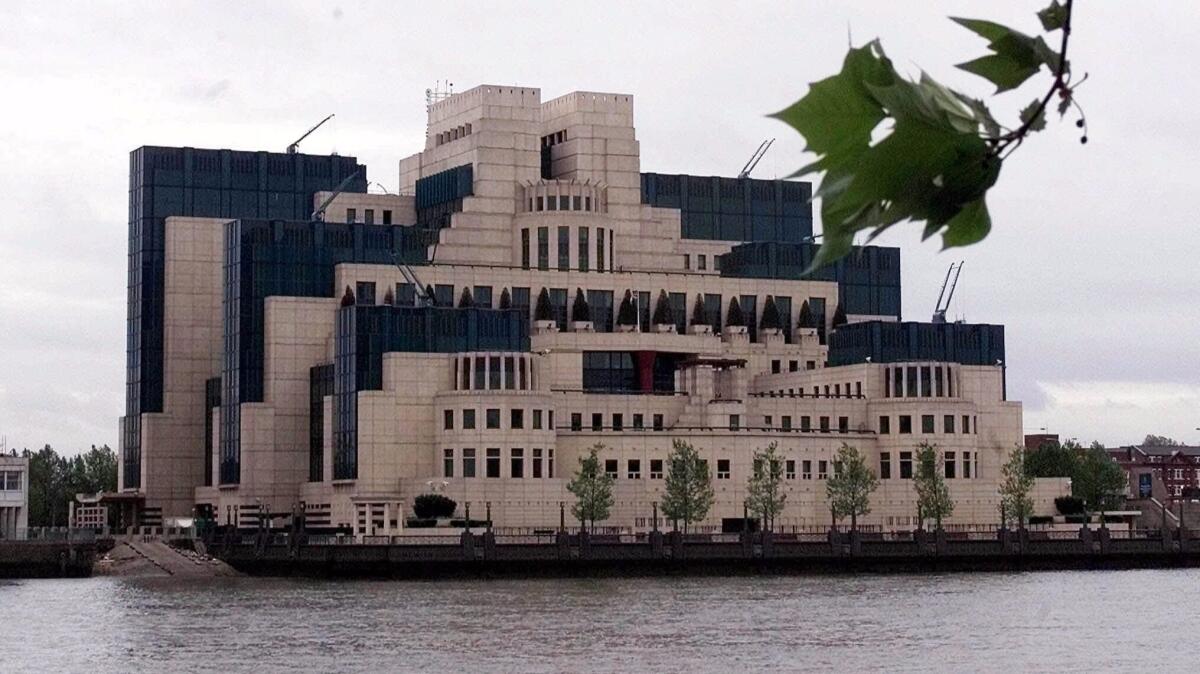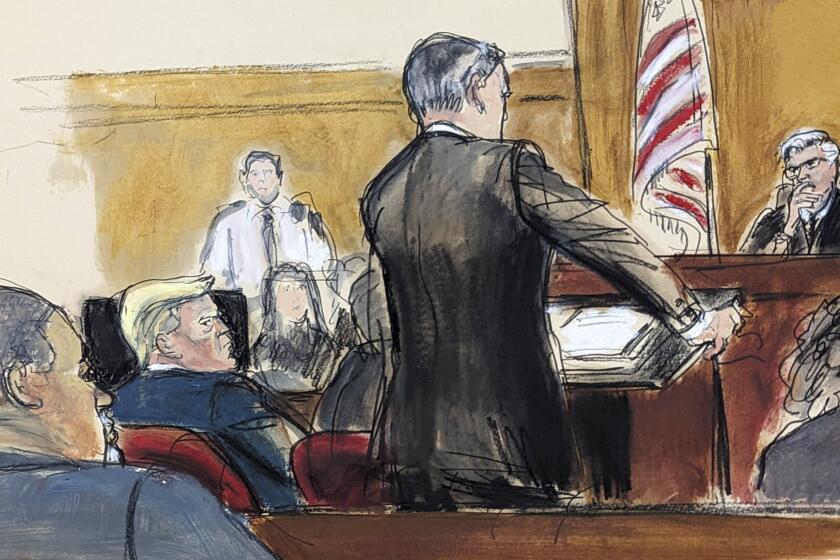Op-Ed: How fake news created the British secret service

During the ongoing investigations of Russian involvement in President Trump’s campaign, the “Trump dossier” gained legitimacy in the minds of many when reports emerged that the document had been compiled by an ex-agent of MI6. In the age of fake news, many in the media seized on the foreign arm of the British intelligence services as an impeccable source.
What few people realize — and what startled me when I began researching my latest spy novel — is that MI6 itself came about as a result of an elaborate campaign of misinformation. In fact, it is fair to say that fake news created both arms of the British secret service, foreign and domestic.
By the start of the 20th century, the British empire was the largest and richest in history. Too big to defend, even — a fact brought home by a rather unsatisfactory series of wars in South Africa. The British government had reluctantly curbed its high-handed tendencies and entered into agreements with its imperial rivals, in particular France and Russia.
Its biggest rival, however, remained Germany. Across the North Sea, the Germans began to enlarge their navy, and there were rumblings in Britain about responding in kind. But it wasn’t the facts that got people in such a lather about German expansion. It was fiction.
The Trump dossier itself isn’t an example of fake news, nor is the British secret service, for all its murky origins, a purveyor of fiction.
In 1903, Erskine Childers published one of the first ever spy novels, “The Riddle of the Sands,” in which a plucky English gentleman goes sailing off the German coast and uncovers a secret plan for a German invasion. The book was a huge bestseller and led to a slew of copycat novels, most of which relied on the existence of beastly German spies, from writers such as William Le Queux and John Buchan.
A “spy fever” began to grip Britain — inflamed, encouraged and, in a very real sense, created by the popular press. In 1906, one of the biggest-selling newspapers, the Daily Mail, commissioned Le Queux to write a serialized account of a German invasion of Britain.
With the help of retired military experts, such as the former commander in chief and war hero Lord Frederick Roberts, Le Queux drew up a feasible attack plan. But the newspaper rejected the first draft, saying any “invasion” needed to go through towns where it wanted to increase its circulation.
Le Queux, who turned out to be an early master of propaganda, duly obliged and produced a series of lurid, plainly ludicrous episodes detailing a German takeover. The articles, later published in book form as the wildly successful “The Invasion of 1910,” not only paint a picture of Britain as riddled with German spies, they take a swipe at immigrants of all nationalities, blame weak leadership on the lack of aristocrats in government, and suggest that the country has gone soft because of taxation.
By the end of 1908, this fever had reached such a pitch that members of the public were sending in hundreds of letters detailing suspected German spies in their areas. Le Queux, whose next book — “The Spies of the Kaiser” (about spies in the United Kingdom) — was even more successful than the last, began bombarding the War Office with these accounts, many of which also found their way into the newspapers.
And, of course, stories of German spies sold newspapers.
Eventually, in 1909, the British government felt compelled to investigate. Officials set up an inquiry into German spies on British soil. But it found nothing. There was no evidence to suggest a network of spies. When the investigation dug a little deeper into some of these stories, it found out that one of the “spies” was an Oxford academic swearing in German to avoid giving offense; another “suspicious” German waiter turned out to be Swiss; the sinister elderly-care home in Suffolk turned out to be … an elderly-care home in Suffolk. There was no case to answer.
Despite this, the Liberal government recommended the establishment of a Secret Service Bureau, split into two sections that covered domestic and foreign intelligence. That’s right: They knew the threat of German spies in Britain was negligible, but they went ahead and created an organization to counter them. There was no real military danger in doing nothing, but there was grave political danger in being seen as doing nothing.
We can tell the true importance the government attached to the Secret Service Bureau at the time, for it had only two employees. Capt. Vernon Kell headed the home section, named MI5 during World War I, and Sir Mansfield Cumming ran the foreign section, or MI6. It wasn’t until this war, in fact, that the service became anything like the one we now know.
The British secret service thus had its origins in a concerted, crude but nevertheless effective campaign of fake news, where the line between fact and fiction was deliberately blurred for political reasons.
Clearly the Trump dossier itself isn’t an example of fake news, nor is the British secret service, for all its murky origins, a purveyor of fiction. But this shifting line — between real and fake news, between intelligence agencies and the politicians who seek to control them — has been at issue for more than a century. Plus ça change . . .
H.B. Lyle is the author of “The Irregular.”
Follow the Opinion section on Twitter @latimesopinion or Facebook
More to Read
A cure for the common opinion
Get thought-provoking perspectives with our weekly newsletter.
You may occasionally receive promotional content from the Los Angeles Times.






